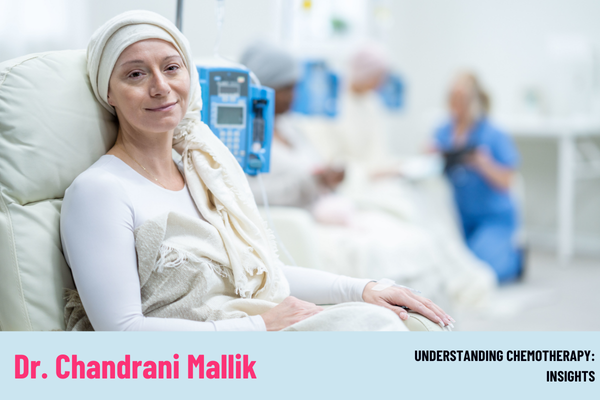Chemotherapy is a cornerstone in the treatment of various cancers, offering hope and extending lives in countless cases. As a method of attacking cancer cells throughout the body, chemotherapy plays a vital role in both curative and palliative cancer care. Dr. Chandrani Mallik, one of Kolkata’s leading cancer specialists, provides an in-depth understanding of chemotherapy, explaining how it works, its potential side effects, and what patients can expect during the treatment process.
What is Chemotherapy?
Chemotherapy involves the use of powerful drugs to destroy rapidly growing cancer cells. Unlike localized treatments like surgery or radiation, chemotherapy is systemic, meaning it travels throughout the body to target cancer cells that may have spread beyond the initial tumor site. It is often used in combination with other treatments such as surgery, radiation therapy, or targeted therapy.
How Does Chemotherapy Work?
Cancer cells grow and divide at an unusually rapid pace. Chemotherapy drugs are designed to interfere with this process, targeting cells in different stages of their growth cycle. While these drugs are effective in killing cancer cells, they can also affect healthy cells that divide quickly, such as those in the hair follicles, digestive tract, and bone marrow, leading to various side effects.
When is Chemotherapy Used?
Dr. Chandrani Mallik explains that chemotherapy can be employed in various scenarios:
- Adjuvant Therapy: Administered after surgery to eliminate any remaining cancer cells and reduce the risk of recurrence.
- Neoadjuvant Therapy: Given before surgery to shrink tumors, making them easier to remove.
- Palliative Care: Used to relieve symptoms and improve the quality of life in advanced cancer cases.
- Primary Treatment: In cases where surgery is not an option, chemotherapy may be the main treatment to combat cancer.
Common Side Effects of Chemotherapy
Chemotherapy is known for its potential side effects, which can vary in severity depending on the drugs used and the individual patient’s response. Some common side effects include:
- Fatigue: A frequent and often debilitating side effect, fatigue can impact daily life significantly.
- Nausea and Vomiting: While these are common, they can often be managed with anti-nausea medications.
- Hair Loss: Many chemotherapy drugs cause temporary hair loss, which typically begins a few weeks after starting treatment.
- Increased Risk of Infections: Chemotherapy can lower the white blood cell count, making patients more susceptible to infections.
- Mouth Sores: Ulcers and sores may develop in the mouth, leading to discomfort and difficulty eating.
- Anemia and Bleeding Issues: Low red blood cell counts can lead to anemia, while low platelet counts can cause easy bruising and bleeding.
Managing Side Effects
Dr. Chandrani Mallik emphasizes the importance of supportive care during chemotherapy. Side effects can often be managed effectively with the help of medications, dietary adjustments, and other strategies tailored to each patient’s needs. Regular monitoring and follow-ups are essential to ensure that the treatment is as tolerable as possible.
The Role of Chemotherapy in Cancer Treatment
Chemotherapy has proven to be an invaluable tool in the fight against cancer. While the journey through chemotherapy can be challenging, it offers the potential for remission, longer survival, and improved quality of life. Under the expert care of Dr. Chandrani Mallik, patients in Kolkata receive personalized treatment plans that maximize the benefits of chemotherapy while minimizing its impact on their overall well-being.
Conclusion
Chemotherapy remains a key component in the comprehensive treatment of cancer. With Dr. Chandrani Mallik, one of Kolkata’s best cancer doctors, patients are assured of receiving expert care that is both compassionate and effective. If you or a loved one are facing cancer treatment, consult with Dr. Chandrani Mallik to explore your options and receive the best possible care.

